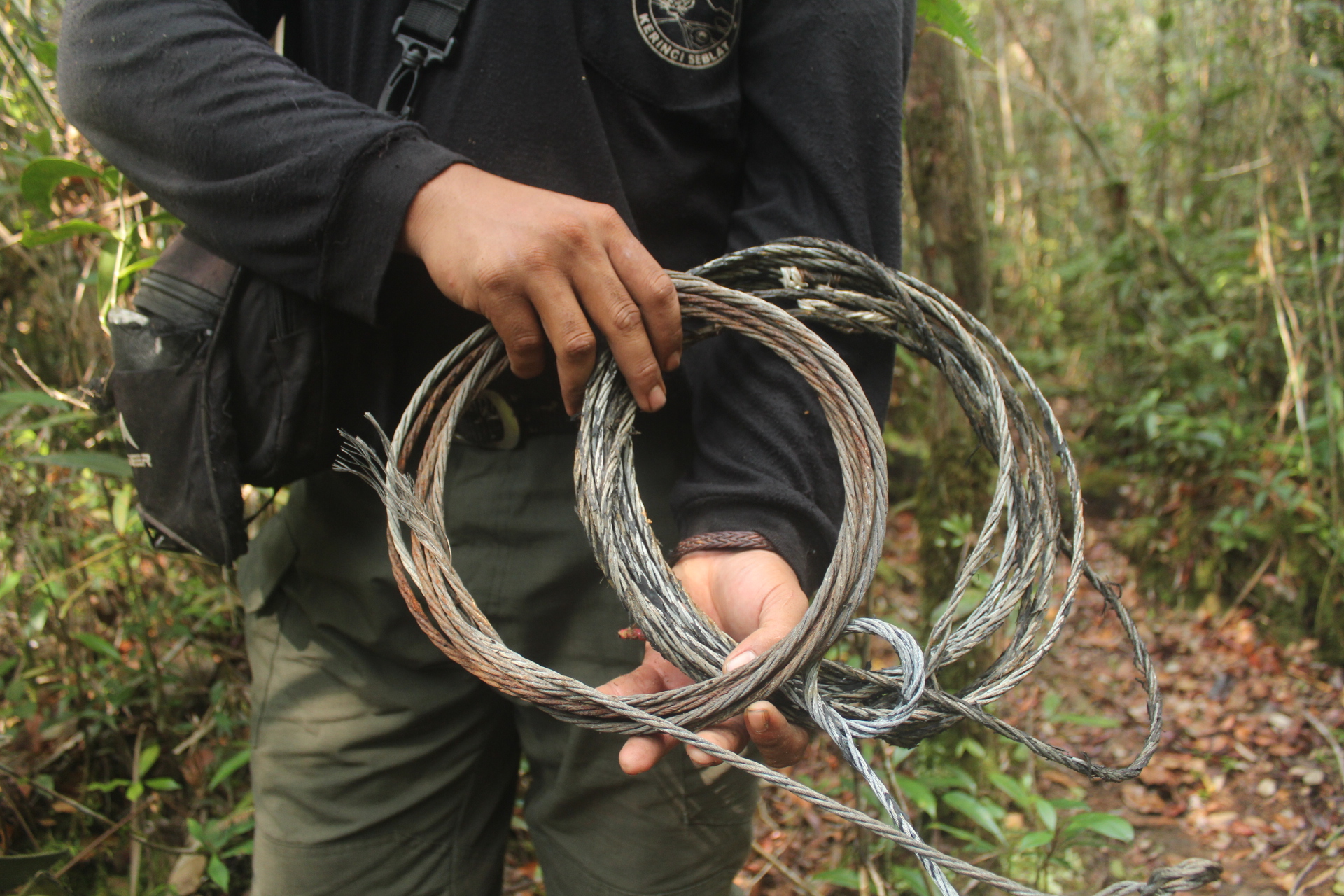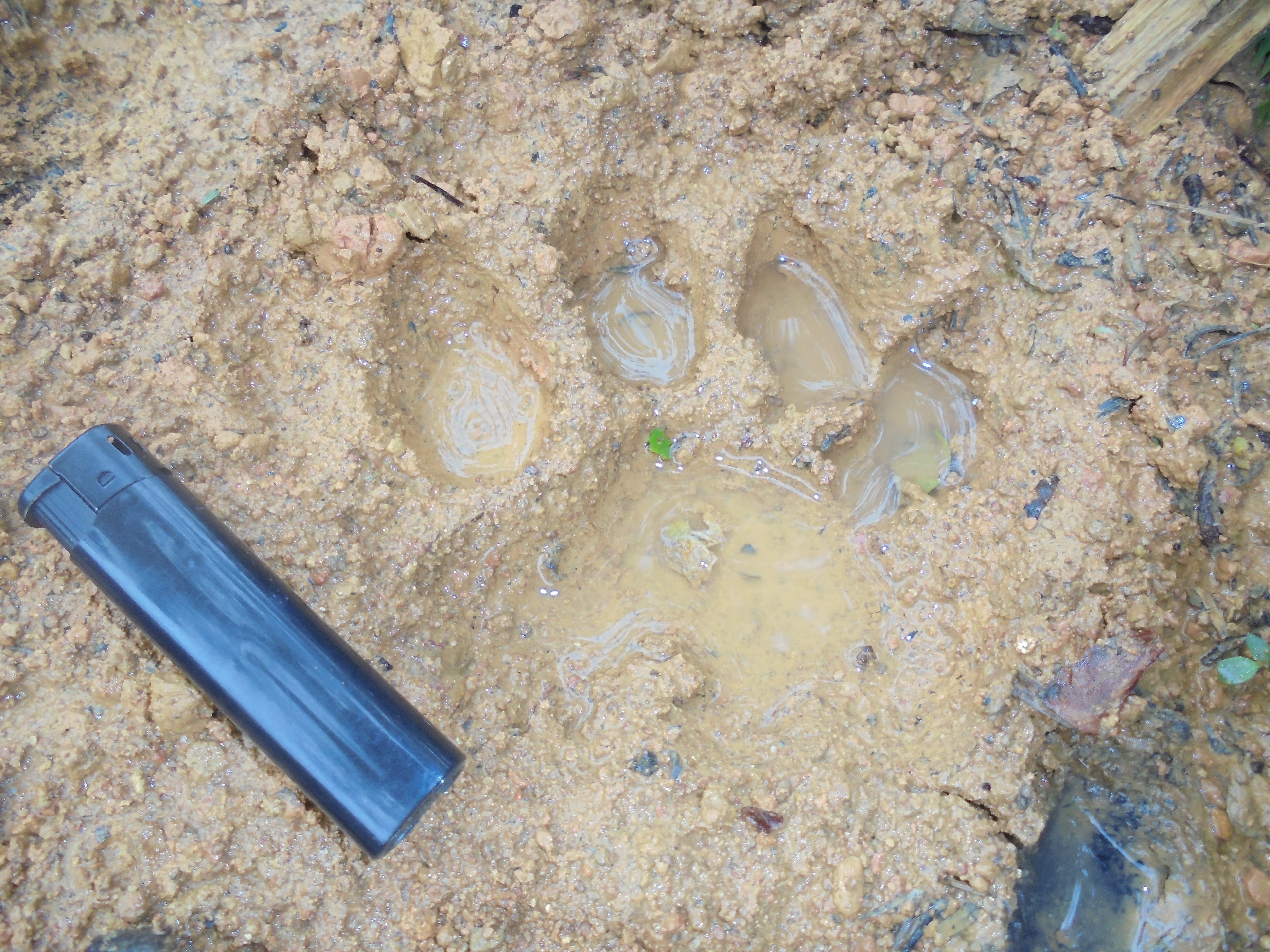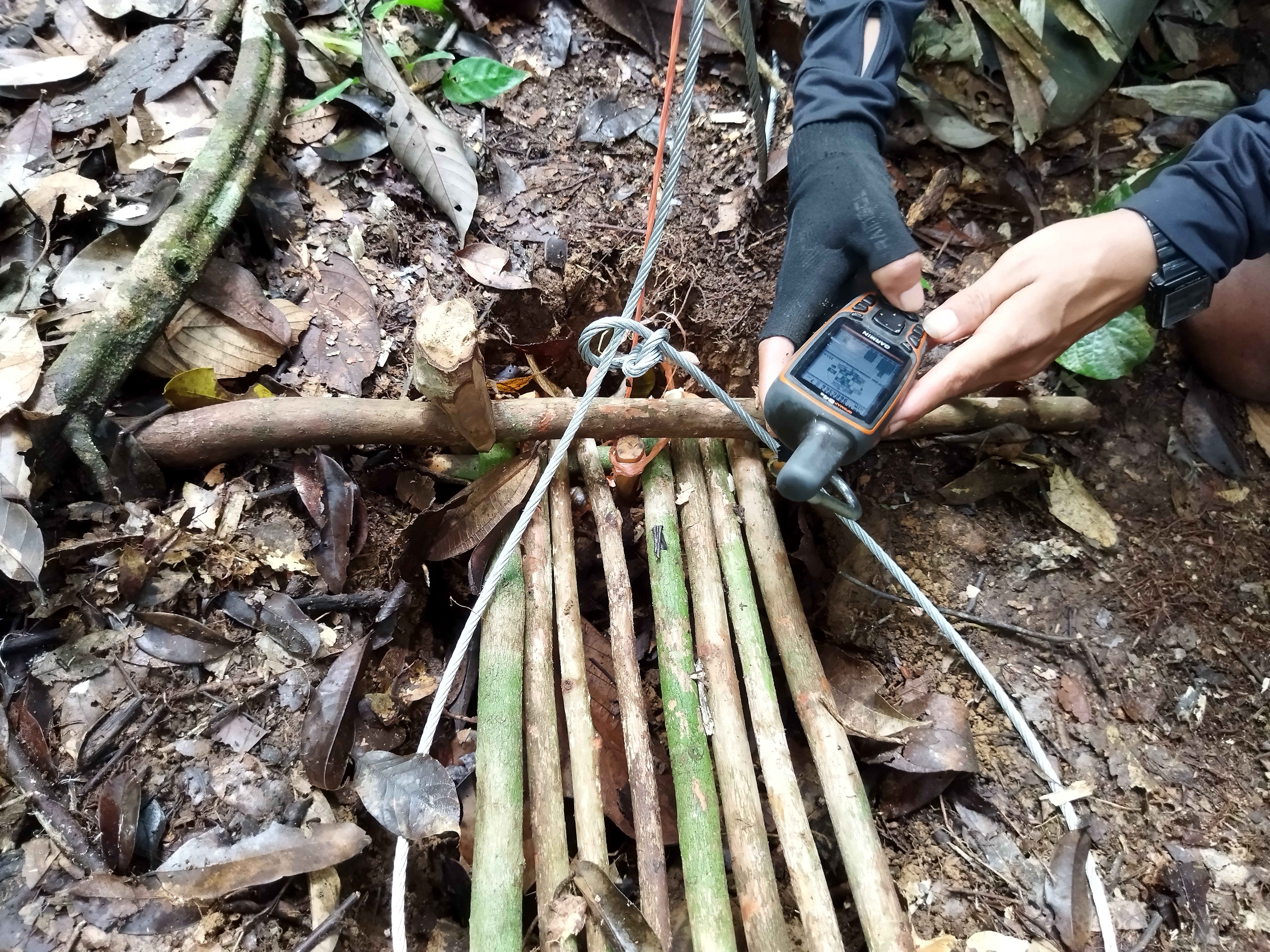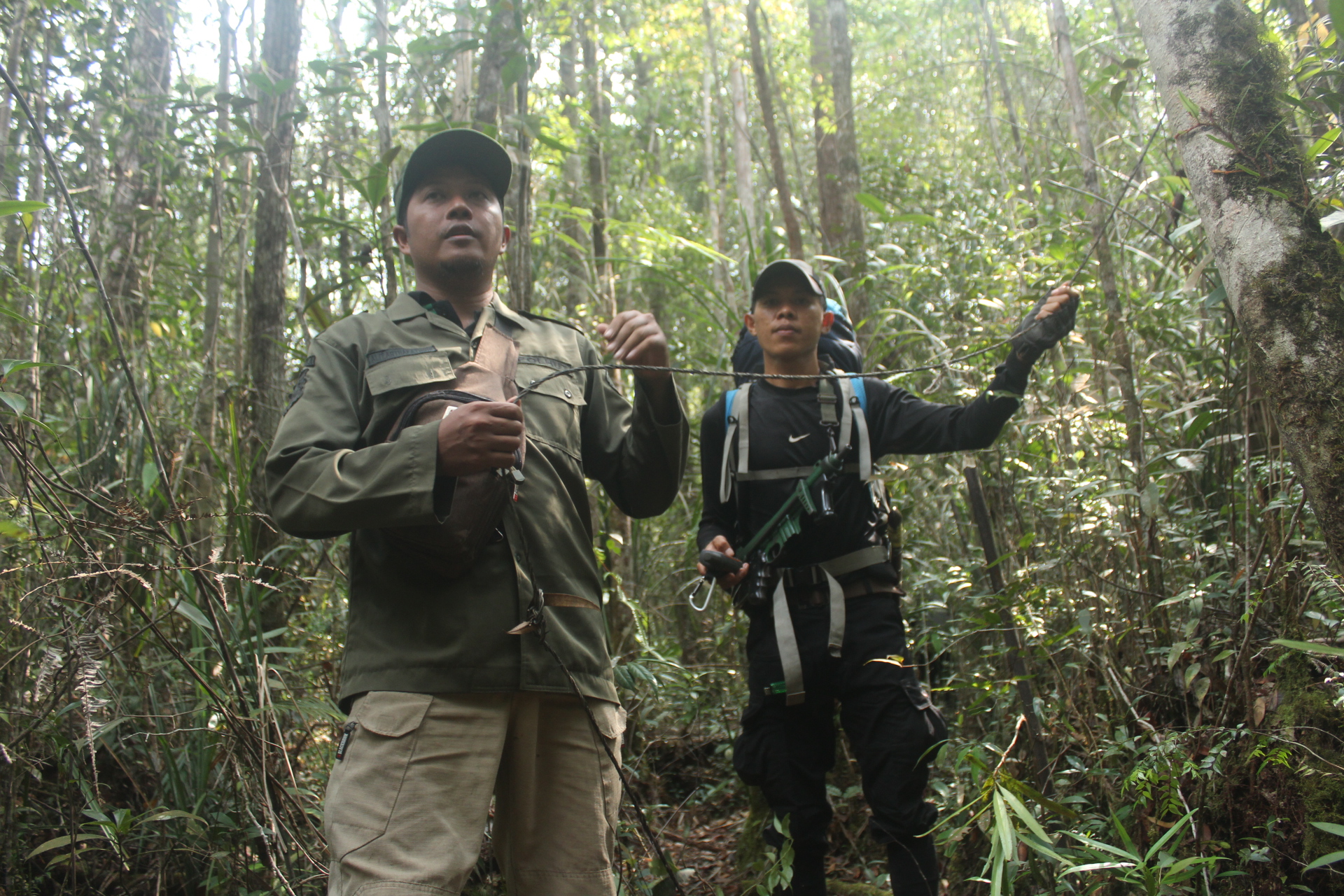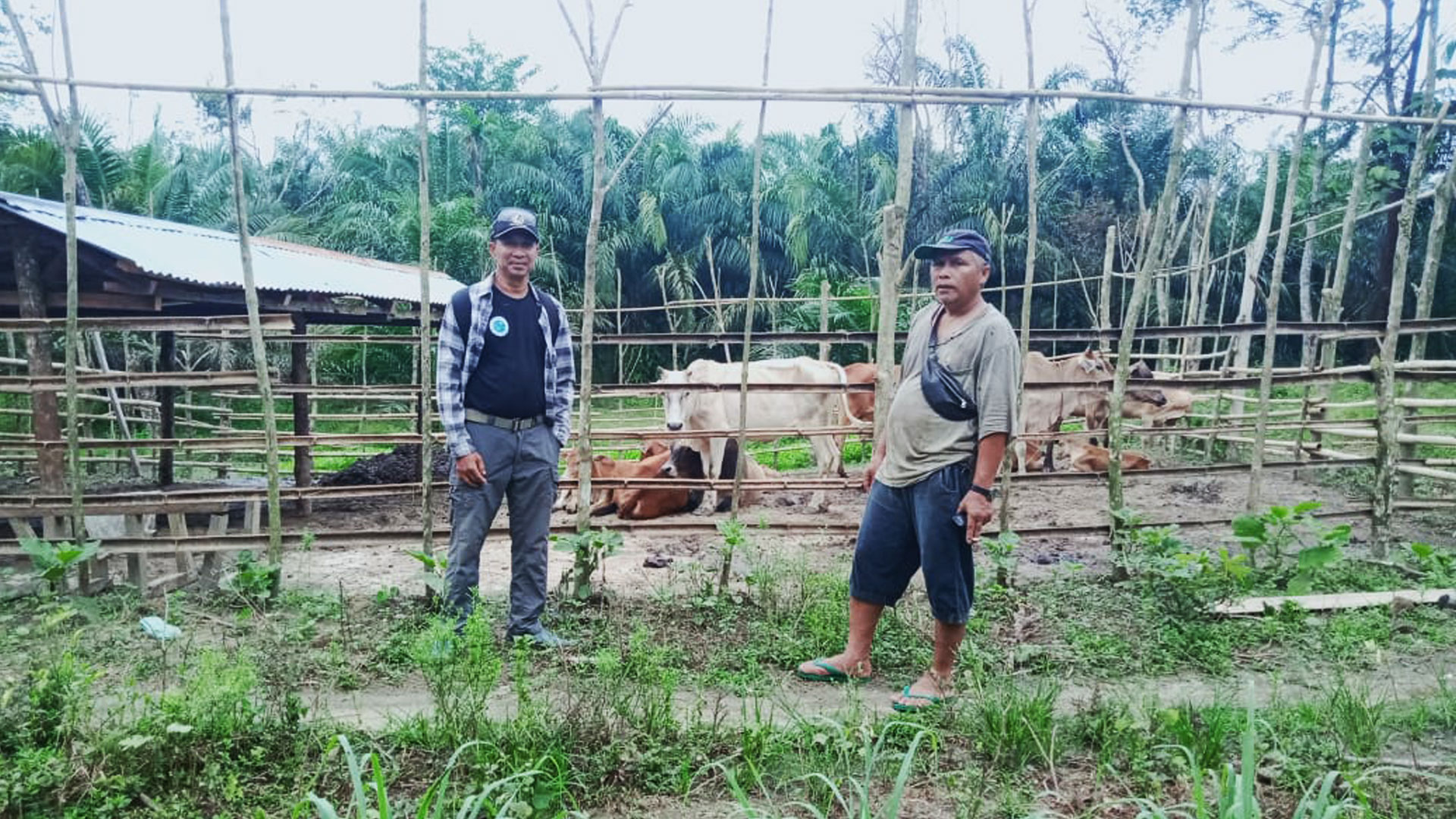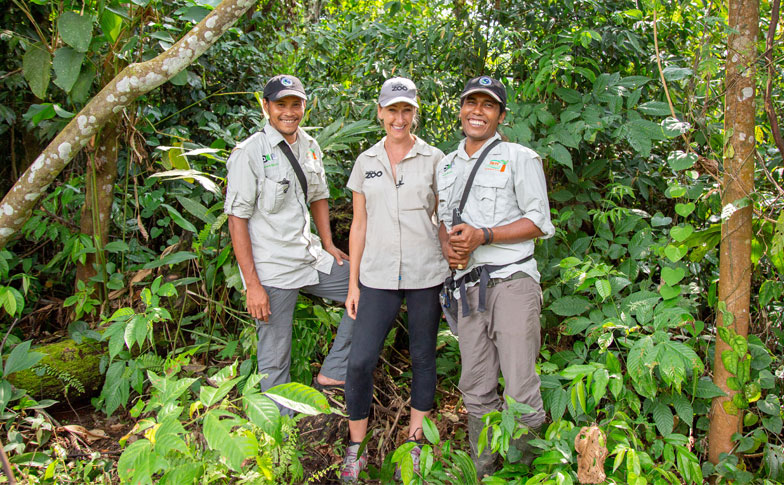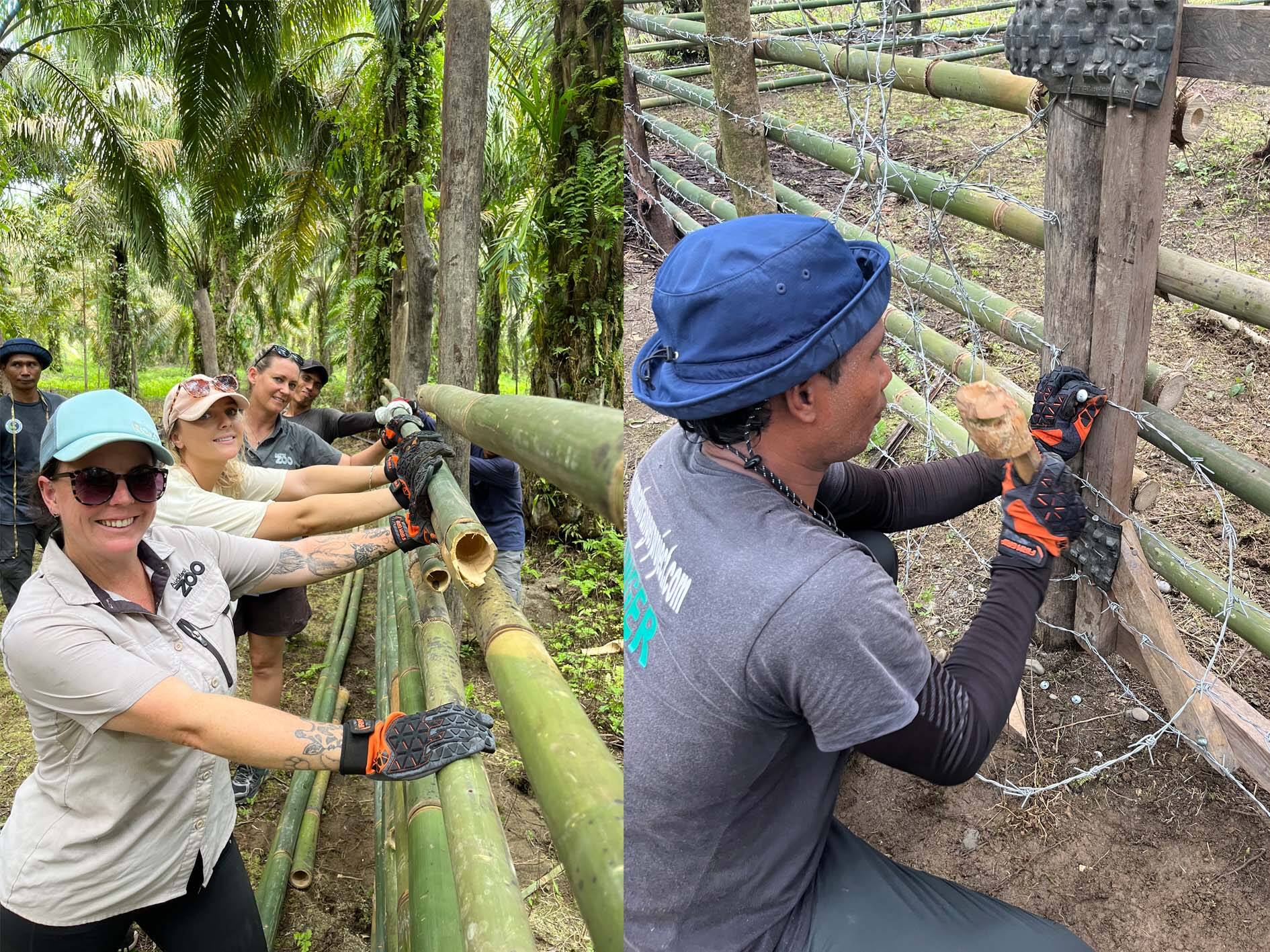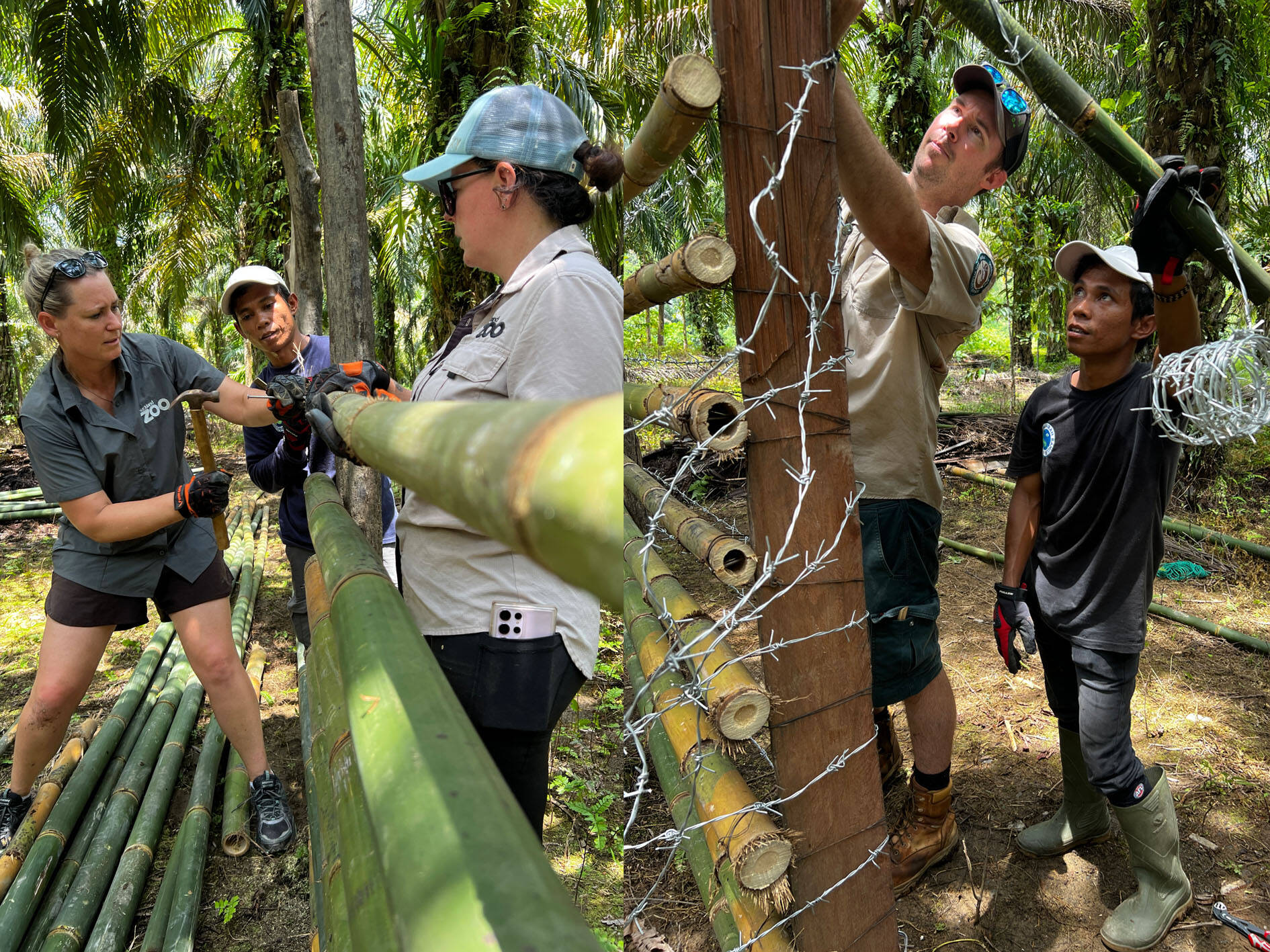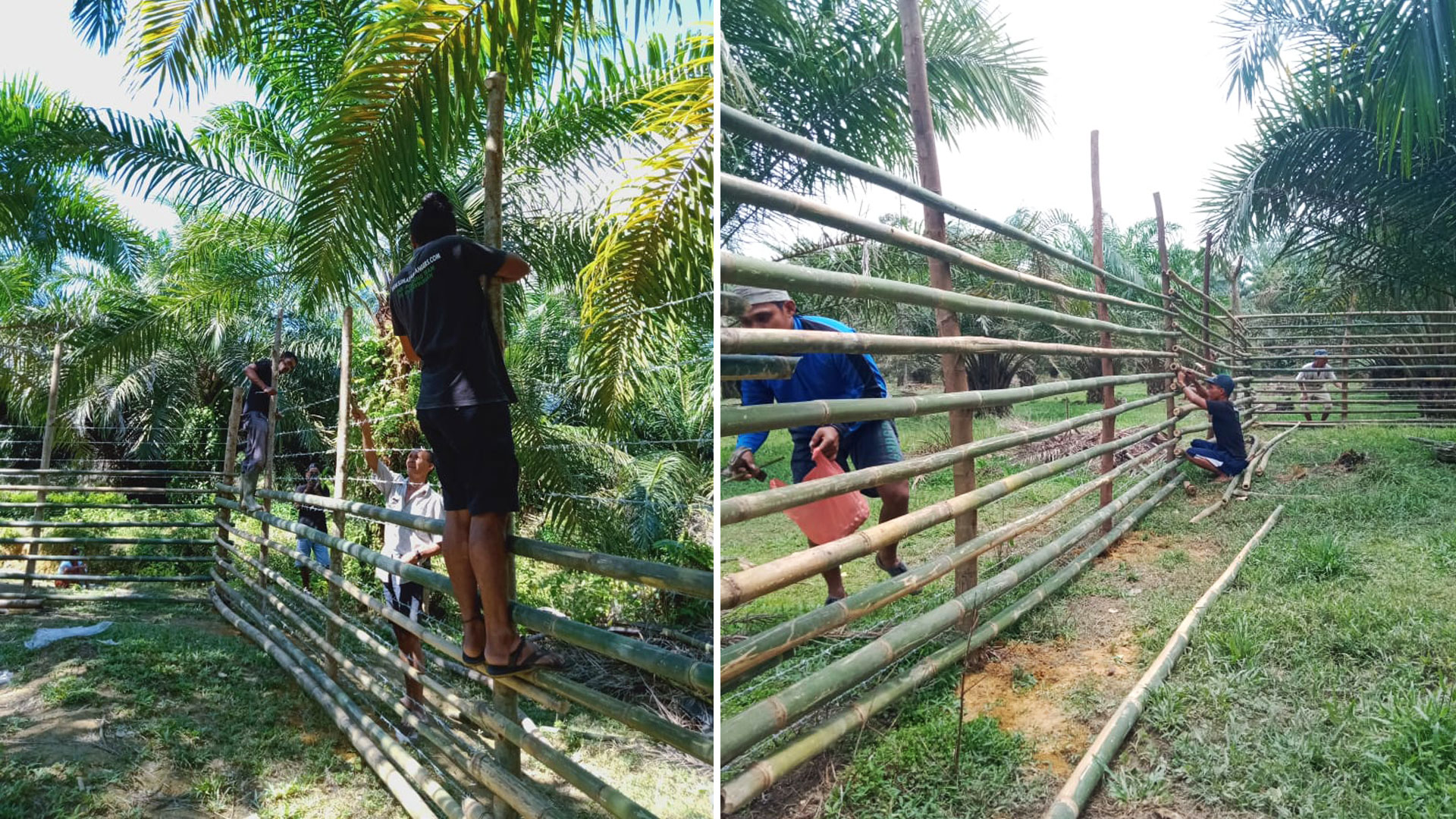Complimenting WildCats’ efforts, in north Sumatra along the border of Gunung Leuser National Park, the Sumatran Ranger Project (SRP) is also achieving wins for Sumatran tigers (and many other wildlife species) and the forest-edge communities it works alongside.
This park is part of the wider Leuser Ecosystem (one of our planet’s most biodiverse habitats) and home to the world’s second and only other viable wild Sumatran tiger population.
SRP founder, Auckland Zoo’s very own deputy curator of mammals, Amy Robbins, says among many ranger activities aimed at supporting wildlife, the environment, and people, is the construction of predator-proof livestock corrals for forest-edge communities.
“Since 2020 an idea that was initially met with community scepticism has turned into a highly successful human-wildlife conflict solution, and in a little over three years we have built 14 corrals. These are a highly cost-effective and practical solution to protecting the livelihoods of locals grazing livestock along the national park boundary, and in preventing retaliatory attacks on tigers that happen following tiger predation events,” says Amy.



